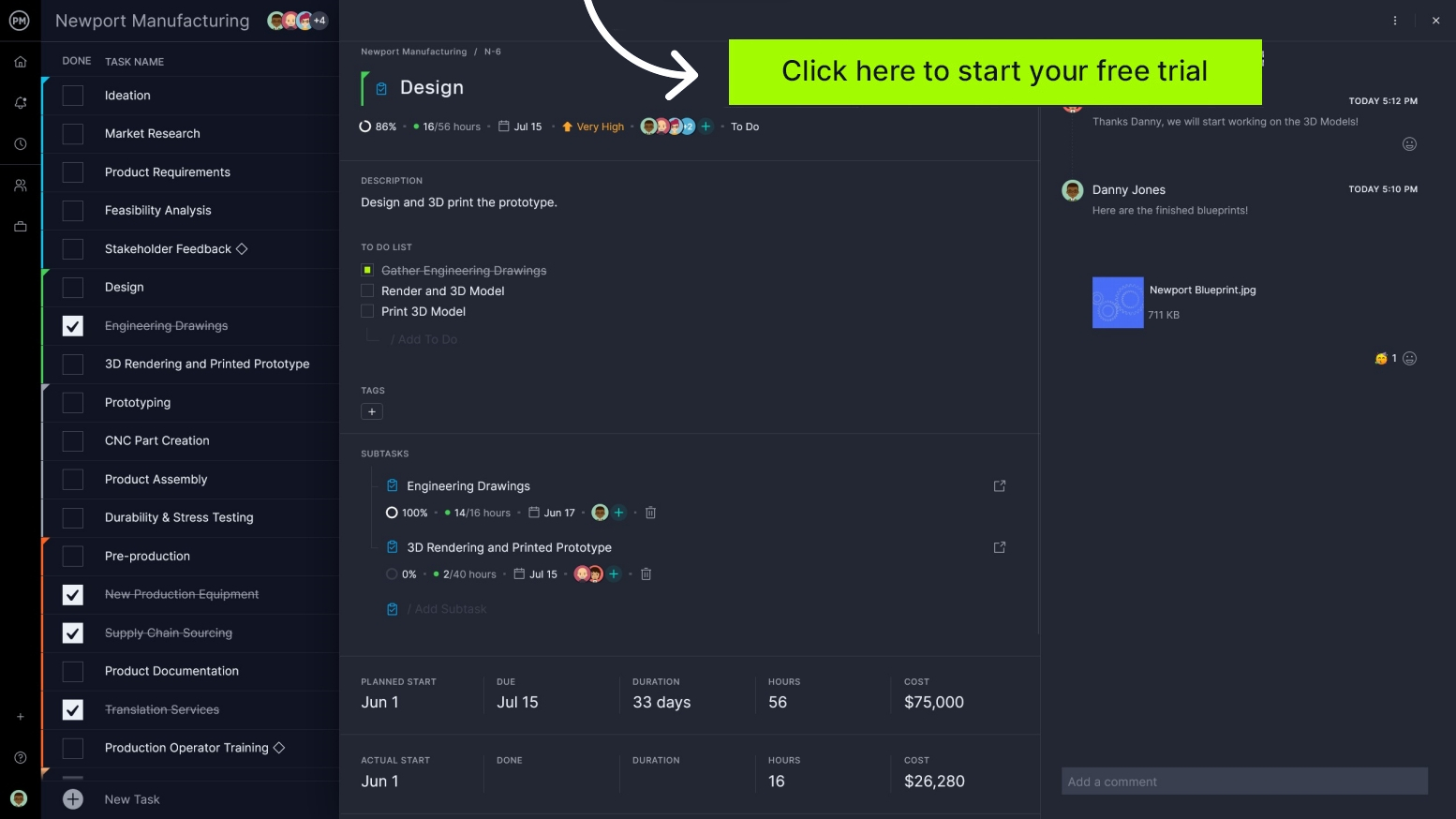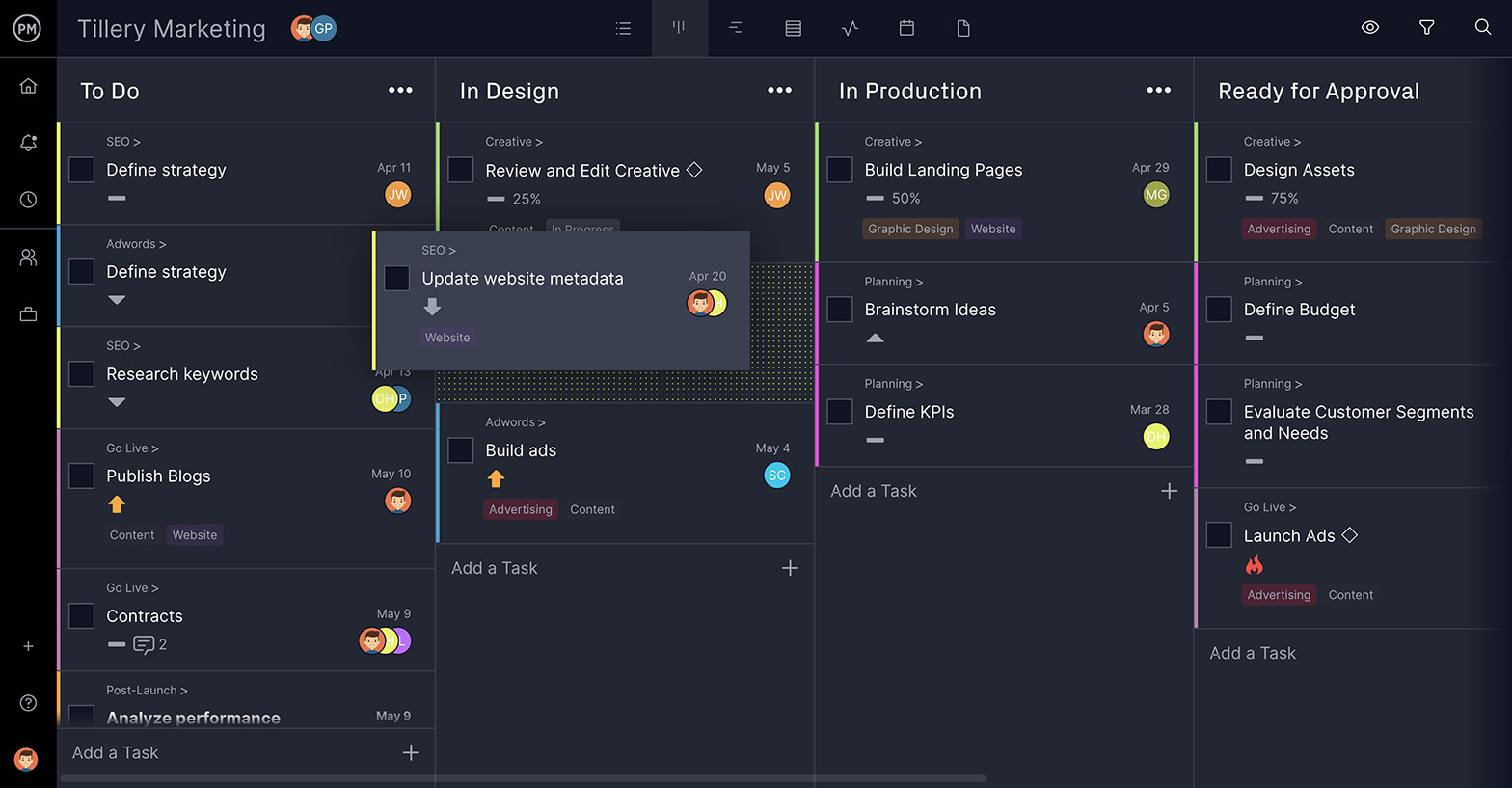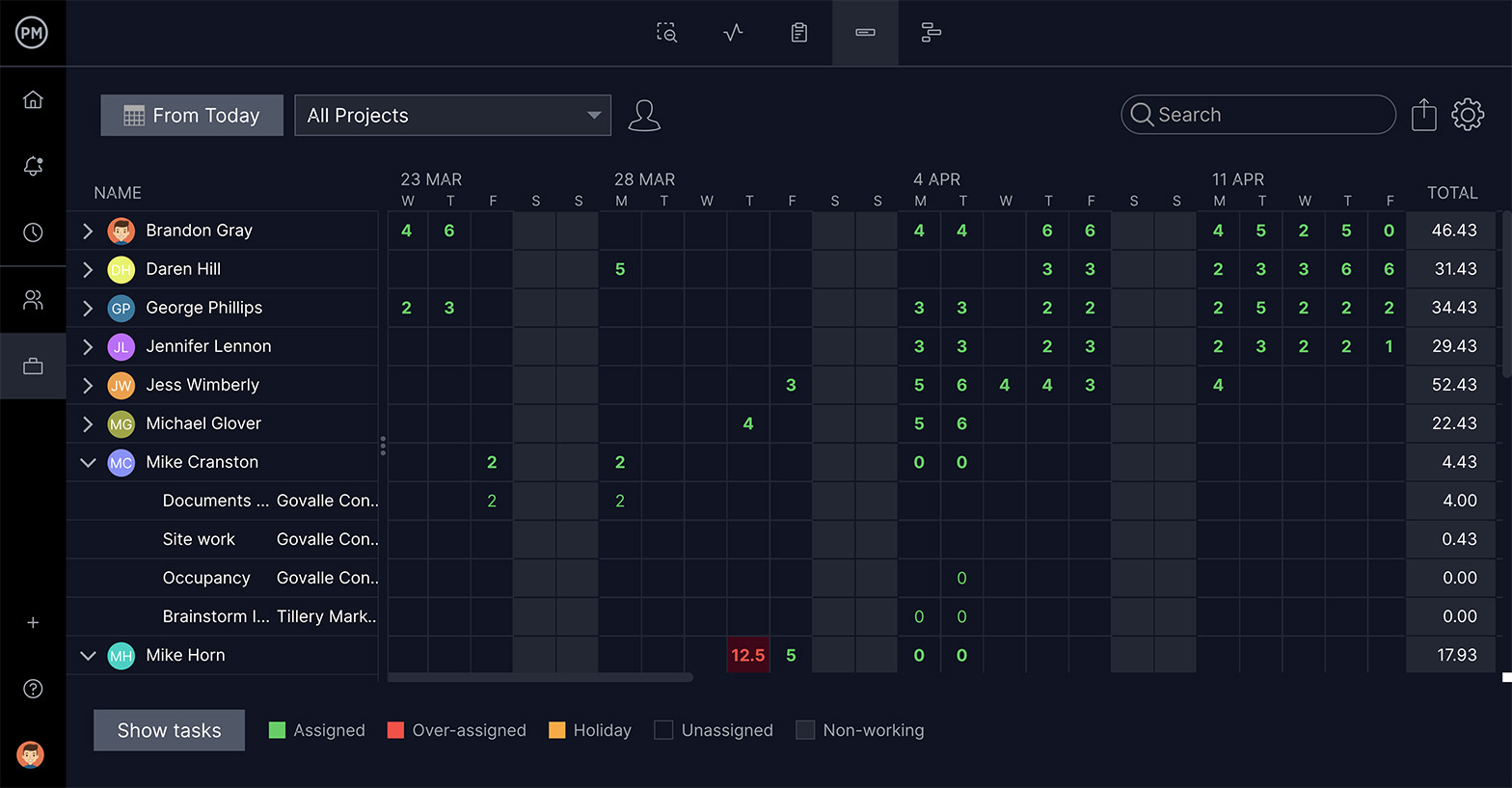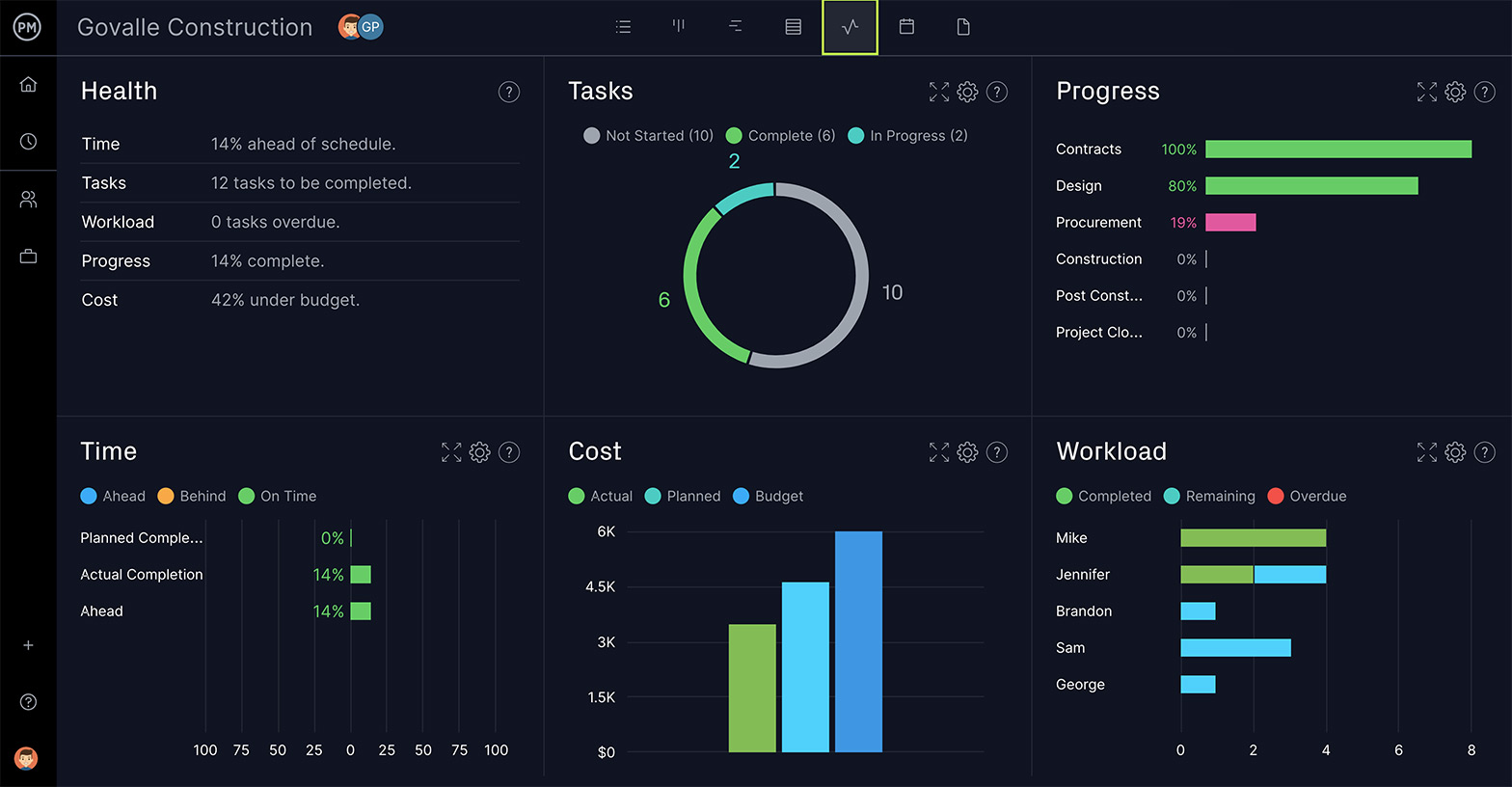Office work had been changing, even before the events of 2020 accelerated them. People were demanding more flexibility. They no longer saw the office as an absolute. More companies began offering flexible hours and remote work as team culture evolves.
This has led to the birth of a new business term: the hybrid team. But with anything new, the definition of a hybrid work model has not come fully into focus. Is it simply working remotely? What does it mean to team members? Let’s take a look at the hybrid work environment, the growth of a hybrid workforce and hybrid work management software.
What Is a Hybrid Team?
A hybrid team is a flexible team that is distributed across different locations or different departments of a company (or a combination of both). Members of a hybrid team use different tools to work and have different skill levels..
Most people think a hybrid team is a distributed team, with some working remotely and others in an office or central location. But the definition of a hybrid team is flexible. Some are team members are remote employees, while others have a more flexible work schedule in and out of the office.
One connecting thread is that a hybrid team doesn’t work in a single work environment. Hybrid teams are made up of people who work differently, whether due to location, tools or skill sets. This leads to having to manage hybrid teams differently because you can’t just have regular team meetings in a conference room or bump into a coworker in the hallway.
You could use a variety of apps, such as Zoom, Slack, Google Suite, etc., and you might have to. But they don’t offer a single source of truth where data is updated and shared throughout the team.
ProjectManager is a cloud-based tool that connects teams, updating them through email and in-app alerts when comments or files are added to a task. Multiple project views let them work how they want, such as on the task list that fosters collaboration, updates status and organizes work. Get started with ProjectManager for free today.

How to Support a Hybrid Team
Because some hybrid teams are distributed and some are fully remote, managers have to think creatively to support them properly. Without the right kind of support, a hybrid team is destined to fail. However, with the proper resources, hybrid teams can be productive and even attract outside talent.
First, you need buy-in from executives. Then, once your company offers flexible work environments, you have to sell it to your team. That might be harder than you’d think—some prefer the office, others would rather work from home and some will a mix of both. Find out what’s best for them.
The last thing you want is to appear to favor one team member over another in the team. The playing field has to be equal in a hybrid work model. Those who work in the office shouldn’t get preferential treatment just because they’re physically in the office space. Remote workers can, unfortunately, sometimes be seen to be slacking off or not being recognized for their participation.
The next step is making sure that your team has the resources they need to work remotely while still connecting with other team members. That sort of virtual collaboration requires using a variety of applications, such as a messaging app, video conferencing, being able to share files, etc.
Benefits of a Hybrid Team
There are many benefits to opening up your business to a more flexible work environment. Let’s take a look at a few below.
- Larger Talent Pool: One of the biggest benefits is that you’re no longer looking for talent within a narrow radius of an office. With a hybrid model, you can recruit from anywhere, exponentially increasing the number of candidates for a position. You now have a global, diverse pool of talent from which to choose.
- Multiple Work Environments: Another plus is that you’re not wedded to one work environment or the other. You can have an office, which allows for one-on-one brainstorming, connecting with people in person and incubating ideas. But you can also have a virtual team that opens the door to worldwide recruitment, greater diversity and innovation.
- Increase Employee Retention: If your teams are happy, they’re more likely to stay at the job. It also means that your workers will be more productive because happy teams are productive teams. Many employers make the mistake of thinking an employee’s sole interest is the size of their paycheck. But more and more, the work-life balance has become of greater importance.
Challenges of Leading Hybrid Teams
That doesn’t mean that embracing hybrid teams and flexible work environments is without its challenges:
-
- Harder Communication: The main issue that comes up with a company contemplating hybrid teams is communication. These fears are legitimate but not insurmountable. At the minimum, there should be regular virtual meetings, either weekly or even daily standup meetings. This brings everyone together to discuss the activities of the week or day and gives people an opportunity to share ideas and feedback.
- Lack of Historical Precedent: Another problem is that hybrid teams are the new frontier in work. That means people are often making it up as they go along. This is a surefire recipe for trouble. The best way to maneuver through this is by including your hybrid team, finding out what they want and trying to find the middle path that connects the office to remote workers.
Tips to Manage Hybrid Teams
It’s hard enough to manage a team when you’re all in the same physical space. That only becomes more difficult when you’re working with a remote team or a hybrid team. Here are some tips to improve your management of hybrid teams.
Be Inclusive to Everyone on the Team
Whether you’re working shoulder-to-shoulder, working remotely or have a flexible work environment, every team member should feel that your management style is the same. Even with hybrid meetings, some can feel as if they’re not at the forefront of their manager’s minds, especially when handing out kudos on good work. Having everyone on your hybrid team feel as if they’re being treated equally will go a long way to improving morale and productivity.
Be Flexible with your Hybrid Team
It would seem obvious that hybrid teams by definition would embrace flexibility, but some team members can become jealous of the flexible work schedules of others. Either they don’t like working from home, setting their schedule or something else entirely. As a manager, you have to give everyone the freedom to set up a schedule that works for the company and the employee. More importantly, have everyone on the team understand that you’re less interested in micromanaging hours than in seeing results.
Be Communicative When Remote
Communication is the lifeblood of any business, and hybrid teams are especially sensitive to this as they’re distributed in such a manner that traditional communication tools often no longer apply. Even with the best video conferencing and messaging apps, there can be gaps. Remote workers should have some person-to-person time every now and then with the entire team. Team-building activities work best in person and the results are a more cohesive hybrid team.
Be Transparent
Building trust takes time, but you need to work on having everyone in the team not only work together, but respect one another. As a manager, you can be open and encourage your team members, whether they’re in the office or working remotely. Also, be sure to keep an eye on their stress levels. It’s easier to gauge a team member’s emotional state when they’re working beside you, but you have to put in an extra effort for your remote workers or those with flexible working arrangements. Regular one-on-one check-ins can help.
Use the Right Software
Hybrid teams are dependent on software to keep them connected. There are a lot of collaborative tools for team management for remote teams, so spend some time finding the one that is right for you. Using only one project management tool would be ideal. Using many different apps can often lead to gaps in team communication, and that creates delays that can cost you money your business can’t afford.
How ProjectManager Helps Hybrid Teams
ProjectManager is a cloud-based project and work management software for hybrid teams. It provides one source of truth for everyone, no matter where or when they’re working. Multiple project views allow team members to work how they want, no matter what department they’re in or their skill level.
Work Flexibly with Different Work Views
For example, hybrid teams tend to be self-directed. ProjectManager’s kanban boards are visual workflow tools that give teams autonomy and managers transparency to manage without getting in the way. Team members can use the kanban board view to manage their backlog and work together by commenting and attaching files directly to the task. Managers can see roadblocks and reallocate resources to keep teams working at capacity.

Assign Work and Allocate Resources Easily
Assigning work to hybrid teams can be problematic. How can managers know if their teams are overallocated? ProjectManager’s resource management tools give managers a virtual window into their team, from the My Work page that shows everyone’s tasks and status to the color-coded workload page that makes it easy to balance workload at a glance.

Track Key Performance Indicators in Real-Time
Monitoring work without interrupting your hybrid team is easy with ProjectManager’s real-time dashboards. Unlike other software, there’s no configuration. The dashboard automatically collects live data, crunches the numbers for you and displays graphs and charts that show time, cost, variance and more. One-click reports give you more detail. They can also be filtered and shared with stakeholders to keep them updated.

ProjectManager is award-winning work management software that organizes tasks and projects on a collaborative platform that helps everyone work better together. Join the 35,000-plus users already on our tool at organizations as varied as NASA, Siemens and Nestles. Get started with ProjectManager today for free!

